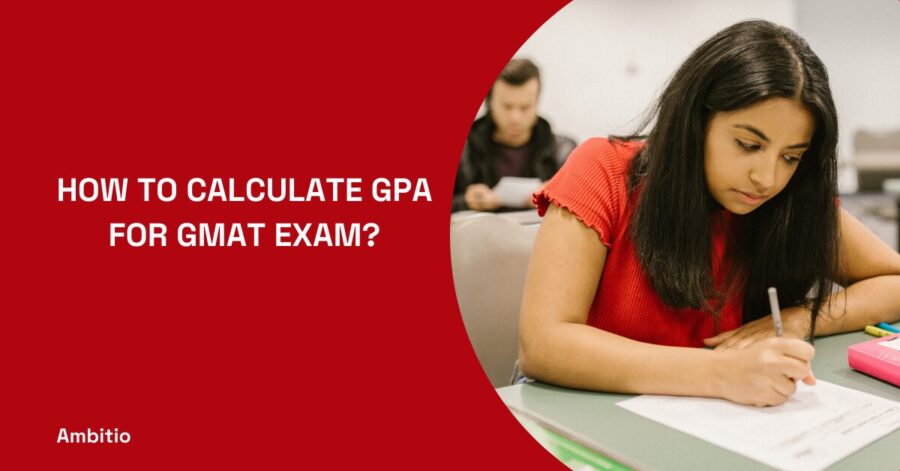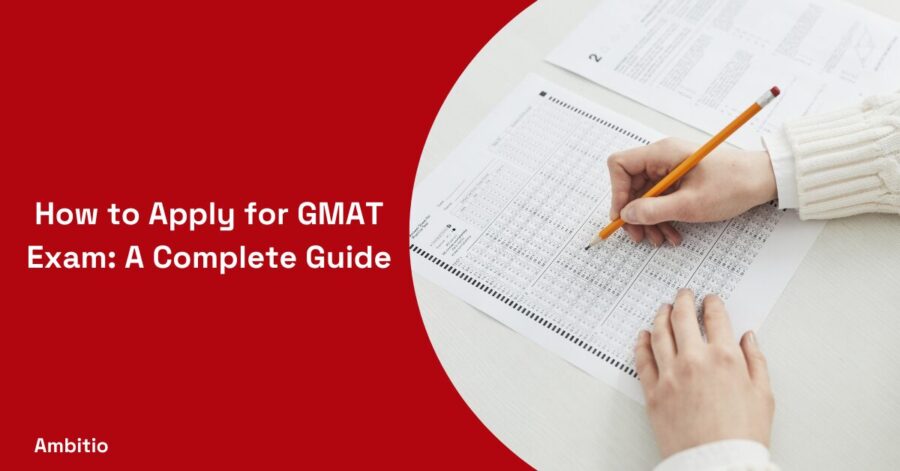17 December 2024
6 minutes read
Different From vs Different Than: Mastering GMAT Sentence Correction

Introduction
The GMAT, known for its challenging sentence correction questions, often tests candidates on nuanced aspects of English grammar. One such area is the distinction between “different from” and “different than”.
This blog post dives deep into these idioms, providing insights and examples to help you excel in the GMAT sentence correction section.
Understanding the Nuances of “Different From” vs “Different Than” in GMAT Sentence Correction
“Different From” – The Preferred Choice in GMAT Grammar
In GMAT sentence correction, precision in language is key. The phrase “different from” is generally the preferred grammatical construction when comparing two entities, be they nouns or clauses.
This preference aligns with formal English usage, where “different from” is used to denote the disparity between two distinct elements.
For example, a sentence in the GMAT might read, “The strategy employed this year is different from the one used last year,” highlighting a comparison between the two strategies.
The Role of “Different From” in Comparative Structures
In GMAT sentence correction questions, understanding how to use “different from” in comparative structures is essential. This phrase often appears in sentences that require comparing qualitative aspects of nouns or ideas.
For instance, “The efficiency of the new GMAT algorithm is markedly different from its predecessor.” Here, “different from” correctly sets up a comparison between two versions of an algorithm, emphasizing their distinct characteristics.
The Colloquial Charm of “Different Than” and Its Place in the GMAT
“Different than” finds its roots in colloquial English, especially in American dialects. It’s typically followed by a clause and is less formal than “different from”.
For example, “His performance on the GMAT was different than expected.” Despite its common usage in everyday language, GMAT sentence correction tends to favor the more traditional “different from”.
When is “Different Than” Acceptable in GMAT Sentence Correction?
There are instances where “different than” might be considered acceptable in the GMAT, especially when followed by a full clause. For example, “Her approach to the problem was different than what we had anticipated.”
However, these instances are rare, and candidates should generally opt for “different from” unless the sentence structure specifically requires “different than”.
Dissecting GMAT Sentence Correction: Real Examples and Analysis
Analyzing real GMAT sentence correction examples can shed light on the correct usage of these phrases. In this section, we’ll dissect several sentences to understand why one choice is preferred over the other.
Case Studies from GMAT Sentence Correction Questions
Consider this GMAT sentence correction question: “The results of the GMAT exam this year are different than/from last year’s.” The correct answer is “different from” because it’s a straightforward comparison between two sets of results.
Similarly, in a question like, “His reasoning was different than/from what the GMAT tutor suggested,” the phrase “different than” could be considered acceptable because it’s followed by a clause, although “different from” remains the safer choice.
The Impact of “Different From” vs “Different Than” on GMAT Scores
Your choice between these two phrases can have a significant impact on your GMAT verbal score. Mastery over such finer grammatical points is often what distinguishes a high score from an average one.
Scoring Implications in GMAT Verbal Section
In the GMAT verbal section, each question counts, and sentence correction questions can be particularly tricky. Using “different from” correctly can demonstrate a strong grasp of comparative structures, which is a key skill assessed in the exam.
Conversely, misuse of these phrases can lead to unnecessary errors, affecting your overall score.
Tips from GMAT Tutors: Mastering “Different From” and “Different Than”
GMAT tutors often emphasize the importance of understanding the subtle differences between “different from” and “different than”. Here, we compile some expert tips to help you make the right choice in the exam.
Strategies for Choosing the Right Phrase in GMAT Sentence Correction
1. Identify the Elements Being Compared
- Strategy: Carefully analyze what is being compared in the sentence.
- Application: If you’re comparing two nouns or simple phrases, use “different from.” Use “different than” if the comparison involves a clause or a more complex sentence structure.
- Example: For “His approach vs. their approach,” use “different from.” For “His approach vs. what was expected,” consider “different than.”
2. Stick to Formal English Standards
- Strategy: Prioritize formal English usage, as GMAT favors standard language rules.
- Application: Even though “different than” might sound correct in conversational English, “different from” is generally more acceptable in formal contexts like the GMAT.
- Example: Choose “Her results are different from the anticipated outcomes” over “Her results are different than the anticipated outcomes.”
3. Practice with Real GMAT Questions
- Strategy: Regularly practice with authentic GMAT sentence correction questions.
- Application: Exposure to real GMAT questions will help you understand how “different from” and “different than” are used in the exam context.
- Example: Use GMAT prep materials and practice tests to familiarize yourself with the application of these phrases.
4. Read and Analyze High-Quality Writing
- Strategy: Read extensively, focusing on high-quality, formal written English.
- Application: Observing how “different from” and “different than” are used in professional and academic writing can enhance your understanding of their correct usage.
- Example: Read academic journals, quality newspapers, and official reports to see these phrases in context.
5. Simplify the Sentence Structure
- Strategy: Simplify complex sentences to clarify the comparison being made.
- Application: If a sentence is too convoluted, rephrasing it might make it easier to decide between “different from” and “different than.”
- Example: Instead of “The outcomes of this experiment are different than what we expected,” try “The outcomes of this experiment differ from our expectations.”
6. Use Mnemonics for Quick Recall
- Strategy: Develop mnemonic devices to remember the basic rule.
- Application: Associate “from” with “formal” and “than” with “than a clause” to recall which to use.
- Example: “From for Formal” can remind you to use “different from” in formal contexts like the GMAT.
7. Consult GMAT Prep Resources for Clarification
- Strategy: Utilize GMAT-specific grammar resources for additional guidance.
- Application: Refer to GMAT grammar guides or online forums like GMAT Club for explanations and discussions on these phrases.
- Example: Look up specific sentence correction questions on GMAT forums to see how others have applied these rules.
By employing these strategies, GMAT candidates can improve their ability to choose the correct phrase in sentence correction questions, thus enhancing their performance in the verbal section of the exam.
Common Mistakes and How to Avoid Them in GMAT Sentence Correction
Even seasoned English speakers can stumble over the correct usage of “different from” and “different than”. Let’s explore some common mistakes and how to avoid them.
Identifying and Correcting Common Errors
1. Misusing “Different Than” in Simple Comparisons
- Common Error: Using “different than” for basic comparisons.
- Example: Incorrect: “Her GMAT score is different than mine.”
- Correction: Correct: “Her GMAT score is different from mine.”
- Tip: Remember, “different from” is typically used for straightforward comparisons between two entities, like nouns or simple phrases.
2. Overusing “Different From” with Clauses
- Common Error: Applying “different from” even when a clause follows.
- Example: Incorrect: “His method is different from what I expected.”
- Correction: More acceptable: “His method is different than what I expected.”
- Tip: While “different from” is usually preferred, “different than” can be more fitting when the comparison involves a full clause.
3. Confusing “Different From” with “Different To”
- Common Error: Mixing up “different from” with “different to” (a less common form, more used in British English).
- Example: Incorrect: “Their approach is different to ours.”
- Correction: Correct: “Their approach is different from ours.”
- Tip: Stick to “different from” for GMAT, as it is universally accepted in both American and British English.
4. Unnecessary Use of “Than” After “Different”
- Common Error: Adding “than” unnecessarily after “different.”
- Example: Incorrect: “The results are more different than expected.”
- Correction: Correct: “The results are more different than expected.”
- Tip: Be cautious of the redundant use of “then” after “different,” especially with comparatives.
5. Overcomplicating Sentence Structures
- Common Error: Complicating sentences unnecessarily while trying to fit in “different from” or “different than.”
- Example: Incorrect: “The GMAT’s verbal section is different than the quantitative section in that it tests…”
- Correction: Better: “The GMAT’s verbal section, unlike the quantitative, tests…”
- Tip: Sometimes, it’s better to rephrase the sentence for clarity and simplicity, rather than forcing a particular structure.
6. Misinterpreting the Comparison Context
- Common Error: Misjudging the context of comparison, leading to incorrect phrase usage.
- Example: Incorrect: “His GMAT performance is different from what we had anticipated.”
- Correction: Correct: “His GMAT performance is different than we had anticipated.”
- Tip: Analyze the sentence to determine if you’re comparing two simple entities or introducing a contrasting clause.
7. Ignoring Idiomatic Usage in Context
- Common Error: Forgetting the idiomatic usage of “different from” in certain contexts.
- Example: Incorrect: “This question is different than any I’ve seen.”
- Correction: Correct: “This question is different from any I’ve seen.”
- Tip: Some phrases have fixed idiomatic forms. Familiarize yourself with these to avoid common mistakes.
By understanding these common errors and applying the corrections, GMAT test-takers can enhance their grasp on sentence correction, improving their chances of a higher score in the verbal section.
Conclusion
In conclusion, the distinction between “different from” and “different than” might seem minor, but it can significantly impact your GMAT verbal score.
Understanding when and how to use these phrases correctly is a testament to your mastery of English grammar, a crucial element for success in the GMAT.
FAQs
Q1: Can using “different from” and “different than” interchangeably affect my GMAT score?
Yes, using these phrases incorrectly can lead to errors in the sentence correction section, potentially affecting your verbal score.
Q2: Are there any exceptions where “different than” is preferred in GMAT?
While rare, “different than” can be used when it precedes a full clause, but “different from” is generally the safer and more grammatically correct choice.
Q3: How can I practice the correct usage of “different from” and “different than” for the GMAT?
Practice GMAT sentence correction questions, and pay close attention to the usage of these phrases in high-quality English literature and formal writing.

You can study at top universities worldwide!
Get expert tips and tricks to get into top universities with a free expert session.
Book Your Free 30-Minute Session Now! Book a call now




























